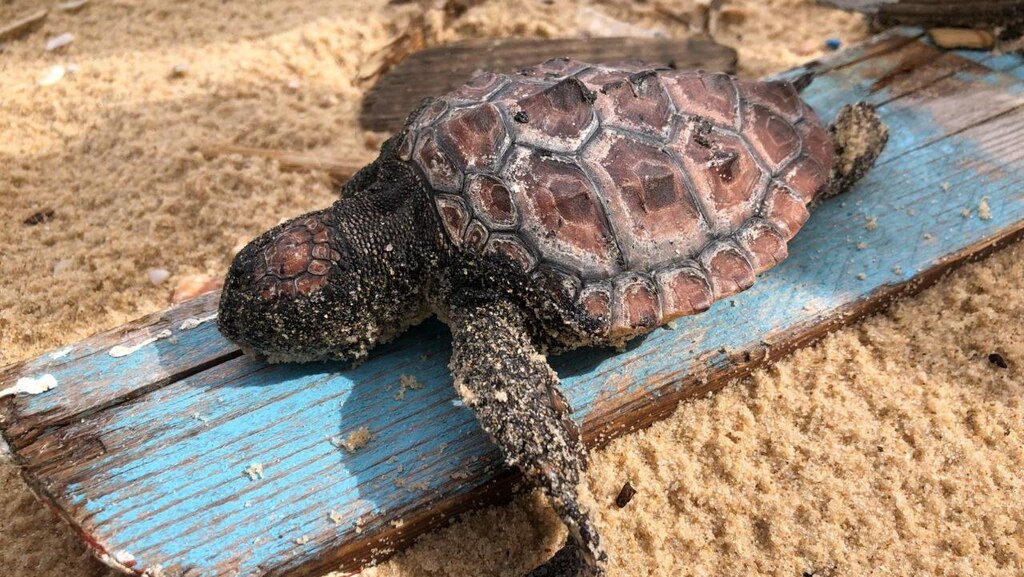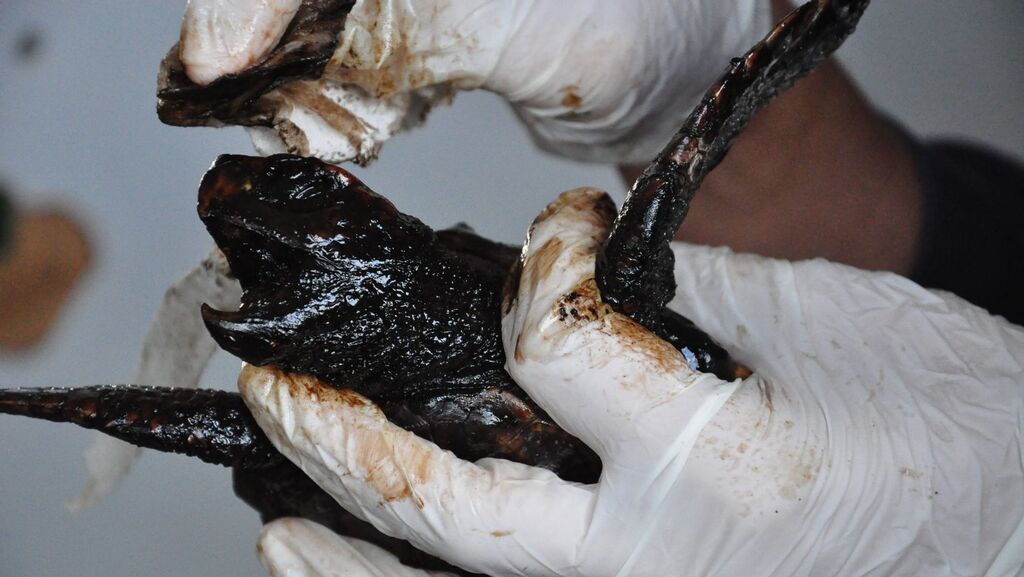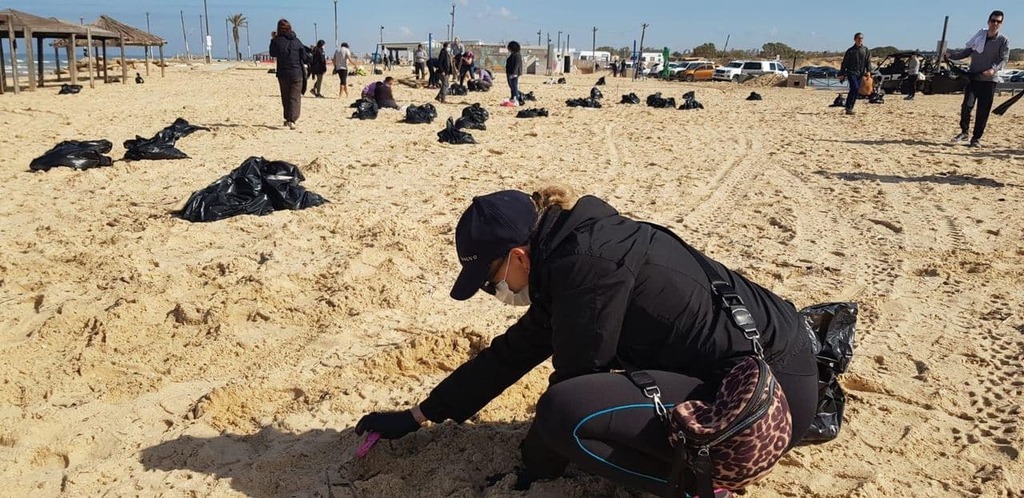The massive oil spill that polluted the majority of Israel’s beaches with enormous amounts of tar over the weekend has caused enormous damage to the country's marine life, with experts saying it will take decades to repair.
Among the victim were six baby sea turtles who were rescued only to die from tar poisoning.
The heavy pollution and the subsequent widespread ecological damage has reached most of the beaches on Israel's coastline, which are now all shut to visitors.
Beaches in northern Israel were hit the hardest by the pollution believed to have been caused by an oil spill from a ship that passed by the coast of Israel last week.
5 View gallery
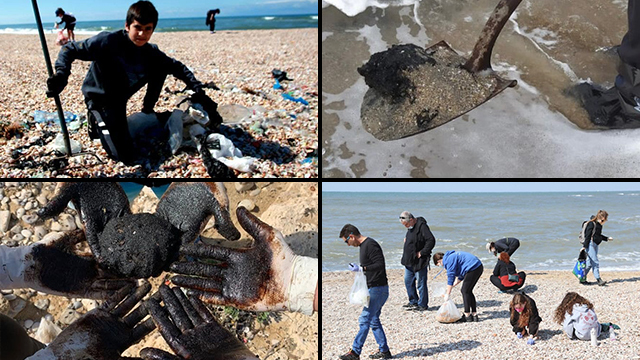

Volunteers clean up Israel's beaches after the oil spill
(Photos: Roee Idan, Moti Kimchi, Oshrat Lupo)
The six turtles made up half of a group of baby sea turtles rescued from Nitzanim Beach in Ashkelon by some of the volunteers who are trying to clean up the enormous amount of tar that accumulated in the water and washed onto the beaches up and down the country.
“Without care none of the turtles would have made it,” says Dr. Yaniv Levin, the manager of the National Sea Turtle Rescue Center at the Israel Nature and Parks Authority.
"They all came with tar all over their heads and a large part of their bodies. They have tar in their eyes, mouths, nostrils and digestive systems. We were able to remove 99% of it," Levin says.
"Thanks to the quick treatment, I believe that [the surviving six turtles] are not in danger, but the road to full recovery is long.”
The INPA is also worried that the pollution will lead to the extinction of several species and to the overall destruction of marine life around Israel.
According to Dr. Ruth Yahel, a marine ecologist at the INPA, inspectors located tar-covered habitats of sea anemones, a relative of the jellyfish that attaches itself to hard surfaces, usually rocks.
“They can't move anywhere, the tar completely covers them, sticks to them and kills them,” says Yahel.
“A lot of other marine animals are also fixed in place and we are committed to keeping them alive. This is nothing less than a maritime disaster," she says.
"There may be habitats that we cannot rehabilitate. All the ecosystems along the shores of Israel were damaged. I've never seen anything like it. The extent of the damage is enormous. It will take decades to rehabilitate and get rid of the pollution."
5 View gallery
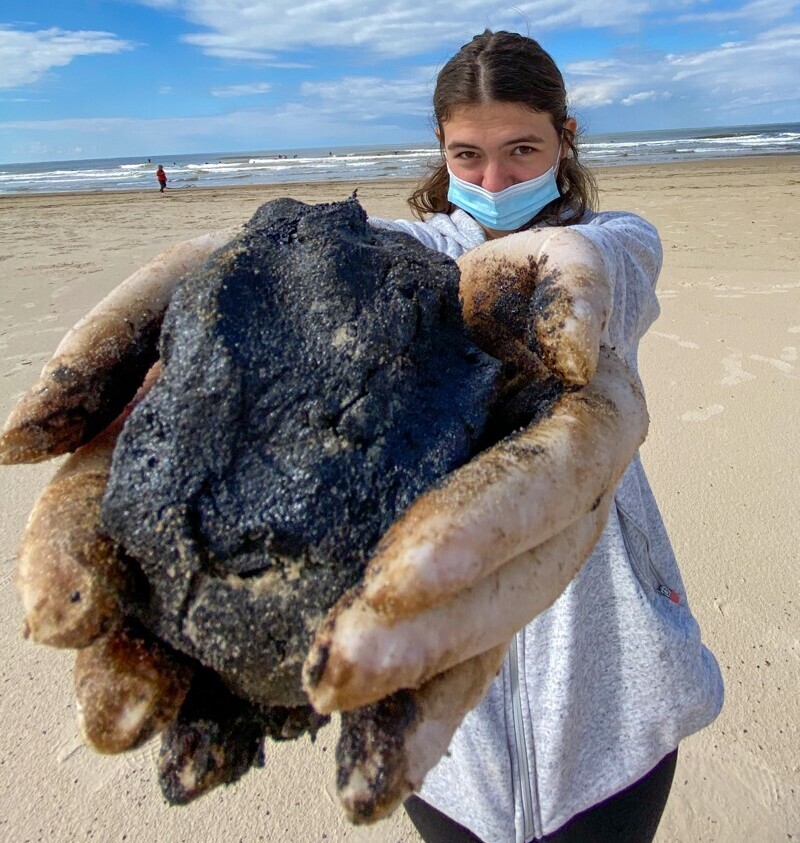

A volunteer displays the tar that washed up on Poleg Beach in Netanya
(Photo: Itzik Gerber)
According to the deputy director of the Nature and Parks Authority’s Central District, Harel Ben Shachar, Israel’s wildlife were not the only victims of this disaster.
“The storm pushed the oil to the foot of the cliffs and flooded the sea rocks and hedge slabs with a very thick layer of oil. We have been through several disasters in recent years and this disaster is complex.”
“It is in all the beaches of the country. There is uncertainty. We do not know what will happen next. It will take a long while before this is behind us,” said Ben Shachar.
Over the weekend, many volunteers worked to clean up the pollution. The Nature and Parks Authority said Sunday morning that in light of many requests from the general public to volunteer and assist in the tar removal and beach rehabilitation activities, the Authority has begun setting up a registration center and information and volunteer stations.


